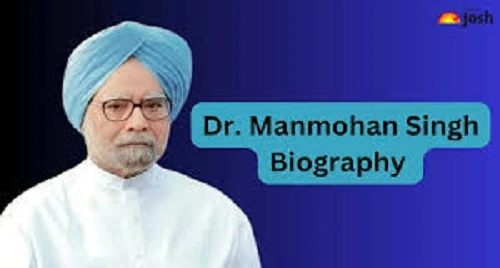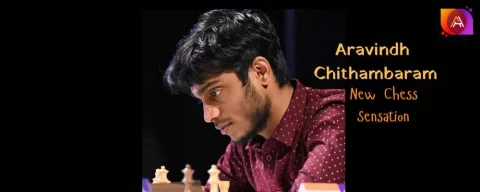Manmohan Singh: History Will Be Kindest
Time and again, historians will undoubtedly favor Dr. Manmohan Singh, a remarkable leader. Who charted a course for India filled with distinction and honor. Therefore, his life story was marked by the partition of India. Has become inseparably linked to his rise as a scholar and statesman. Although the consequences of partition were deeply challenging, Singh transformed those hardships into stepping stones for an illustrious educational journey. Furthermore, his reasoned approach and unwavering management skills proved pivotal in shaping India’s economic revolution. As Prime Minister, he led the nation through significant change and progress. Consequently, people will remember his legacy as one of steadfast service and meaningful impact on the lives of countless citizens. This blog honors Dr. Singh and highlights his profound contributions to India’s history.
Childhood Precursors and Educational Path
The former Prime Minister of India, Dr. Manmohan Singh, was born on September 26, 1932. In Gah, now part of present-day Pakistan. Growing up during the tumultuous partition of India in 1947, his family was forced to flee to India. Despite these adversities, Singh remained determined to pursue his education. As a result, he not only attended classes but also excelled in his studies. Eventually earning a spot to study economics at Panjab University. Subsequently, he achieved a Master’s degree at Cambridge University and later earned his doctorate from Oxford University.
These formative years were critical in shaping his expertise in economics and, over time. Paved the way for an outstanding career in public service. Moreover, his academic brilliance and deep understanding of economic principles became the foundation for his leadership in forming India’s economic policies.
Economic Reforms: A Turning Point for India
By the early 1990s, India faced a severe economic crisis, with dangerously low foreign exchange reserves and soaring inflation rates. However, at this crucial juncture, Dr. Manmohan Singh, as Finance Minister, introduced groundbreaking economic reforms. For instance, he abolished the License Raj, reduced import duties, and liberalized sectors previously reserved for public enterprises. Consequently, these measures revitalized the Indian economy, modernizing its structure and integrating it into the global market.
Furthermore, Singh implemented policies to curb inflation, reduce the fiscal deficit, and stabilize the economy. These reforms not only positioned India among the fastest-growing economies in the world but also laid the groundwork for future prosperity. Additionally, his leadership during this transformative period significantly altered the trajectory of India’s economic history, making him a pioneer of liberalization whose efforts continue to benefit the nation today.
Character and Leadership Ethics
Dr. Singh’s leadership was rooted in core values such as integrity and humility. Unlike many leaders of his time, he chose to work behind the scenes rather than seek media attention. Instead of grandstanding, he focused on tangible actions and decisions that served the public good. Moreover, his leadership principles emphasized accountability, honesty, and dedication to national productivity.
Even after achieving the highest office in India, Singh maintained a humble lifestyle, setting an example for others to follow. His quiet demeanor and steady leadership earned him respect across political lines. Consequently, he remains a symbol of ethical leadership, reminding us of the importance of humility and integrity in public service.
The Legacy of Economic Reform and Global Engagement
Dr. Singh’s influence on India’s economy is unparalleled. For instance, the reforms he championed in the 1990s brought India into the globalized world, spurring economic growth and transforming it into a rising economic power. Additionally, his focus on inclusive growth, rural development, and social welfare programs lifted millions out of poverty.
On the global stage, Singh’s diplomatic efforts with nations like the United States, China, and Pakistan helped foster strategic partnerships. Notably, the Indo-US Civil Nuclear Agreement of 2008 not only strengthened India’s position in the global nuclear community but also underscored its emergence as an economic and strategic powerhouse.
A Quiet and Steady Prime Minister
When Dr. Singh assumed the role of Prime Minister in 2004, he brought with him a technocratic approach to governance. In contrast to the dramatic style of many political players, Singh defined his leadership with prudence, continuity, and a focus on nation-building.
Under his tenure, India achieved impressive economic growth, averaging an annual rate of 8-9%. Furthermore, his emphasis on infrastructure, technology, and rural development helped address critical issues such as poverty and unemployment. Meanwhile, his cautious handling of international relations ensured that India emerged as a stable and respected player on the global stage.
The Final Farewell of Dr Manmohan Singh
Dr. Singh’s funeral, set for December 28, 2024, will be conducted with full state honors. Leaders, dignitaries, and citizens from across the nation will gather to pay their respects to a man who redefined leadership with grace and wisdom.
A Legacy That Will Endure: Dr Manmohan Singh
As Dr. Manmohan Singh is laid to rest, his life’s work will continue to guide the nation he cherished so deeply. His story serves as a powerful reminder that true leadership is defined not by noise but by vision, not by authority but by action. Although his earthly journey has ended, Dr. Singh’s ideals will live on in the policies he shaped and the lives he touched.
As India bids farewell to this extraordinary leader, it also celebrates his enduring dream of a progressive, inclusive, and prosperous nation. In mourning his loss, the country honors a man whose life exemplified the spirit of public service—a legacy that will illuminate the path for generations to come.
Don’t forget to explore Ratan Tata’s Success Story
Top FAQ About Dr Manmohan Singh
Manmohan Singh was born on September 26, 1932, and passed away on December 26, 2024, at the age of 92.
Yes, Dr. Manmohan Singh passed away on December 26, 2024.
Early Life and Education: Born in Gah, Punjab (now in Pakistan), Dr. Singh pursued his bachelor’s and master’s degrees at Panjab University. He later attended the University of Cambridge for Economics and completed his D.Phil. at the University of Oxford in 1962.
Dr. Manmohan Singh was married to Gursharan Kaur. The couple has three daughters.
Dr. Manmohan Singh’s wife is Gursharan Kaur, known for her dignified presence and support during his political career.





